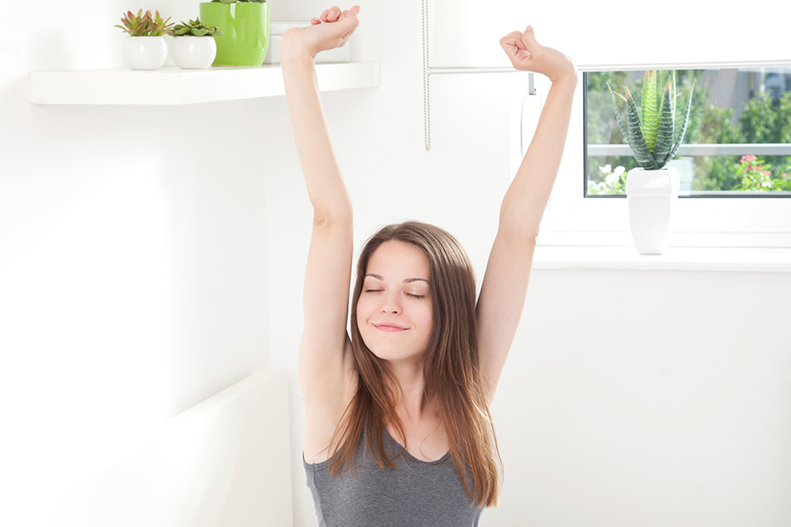This year, on the second Sunday of March, most of the country will move their clocks one hour ahead, marking the beginning of Daylight Saving Time. This effectively moves one hour of daylight from the morning to the evening, giving us longer summer nights. But waking up the following Monday morning may not be so easy, having lost an hour of sleep. How these time changes will affect you depends on your own personal sleep habits, and lifestyle.
“The fundamental problem we have in our current 24/7 society is that everyone is already experiencing some sleep deprivation,” says Patrick J. Strollo Jr., MD, Medical Director of the University of Pittsburgh’s Sleep Disorder Program. “When we make even small adjustments in sleep schedules, that can have a negative impact.”
Moving our clocks in either direction changes how much our bodies are exposed to light, which is the principal factor for setting and resetting our 24-hour natural cycle, or circadian rhythm. In doing so, our internal clock becomes out of sync with our current day-night cycle. An unwritten rule is that it will take about one day for your body to adjust for each hour of time change. However, this might vary by individual.
What can you do to reset your internal clock to adapt more quickly to the time changes? Your 24 hour natural cycle is internally generated but it can also be influenced by the environment, behavior, and medications. Here are some steps you can take to avoid sleep deprivation and help ease the transition to the time change.
Never Miss a Beat!
Subscribe to Our HealthBeat Newsletter!
Thank you for subscribing!
You can now select the specific newsletters you'd like to receive.
You are already subscribed.
Subscribe to more newsletters in our email preference center.
Sorry, an error occurred. Please try again later.
Get Healthy Tips Sent to Your Phone!
4 Steps to Adjust to the Time Change
1.) Light is the dominant environmental cue. Light suppresses the secretion of the sleep-inducing hormone melatonin. So it is important to expose yourself to the light as much as possible while you are awake, and to limit your exposure to bright light when it is dark outside. For example, if you get up at night to go to the bathroom, you should not turn on the light. Prepare beforehand by placing a night light in the bathroom.
2.) Plan ahead. Make the time change incrementally by setting your alarm clock 15 minutes earlier and earlier for five consecutive days. So, when the time change actually hits, you’re already there.
3.) Create sleep-friendly environments to increase your chances of falling asleep easier, staying asleep longer, and sleeping more soundly. Try to reduce or eliminate consuming caffeine and alcohol, and avoid exercising before bedtime. Establish relaxing rituals before bed to gradually calm yourself such as taking a hot bath, and wearing ear plugs and/or eye masks.
4.) Get some exercise. Exercise helps advance the body clock, just as bright light exposure does. Exercise also raises your body temperature and helps you feel more energized.
About Sleep Medicine
Millions of Americans struggle with disorders that prevent them from getting a good night’s sleep. Better sleep can lead to better overall health, and the UPMC Sleep Medicine Center is here to help. We diagnose and treat numerous sleep conditions or disorders. We also provide help to people suffering from lack of sleep because of other health problems. We recognize a lack of sleep can cause problems during other times of the day, including alertness, memory, and health immunity. We hold sleep studies and lead clinical trials, all in the name of helping you sleep. Find a provider near you.
